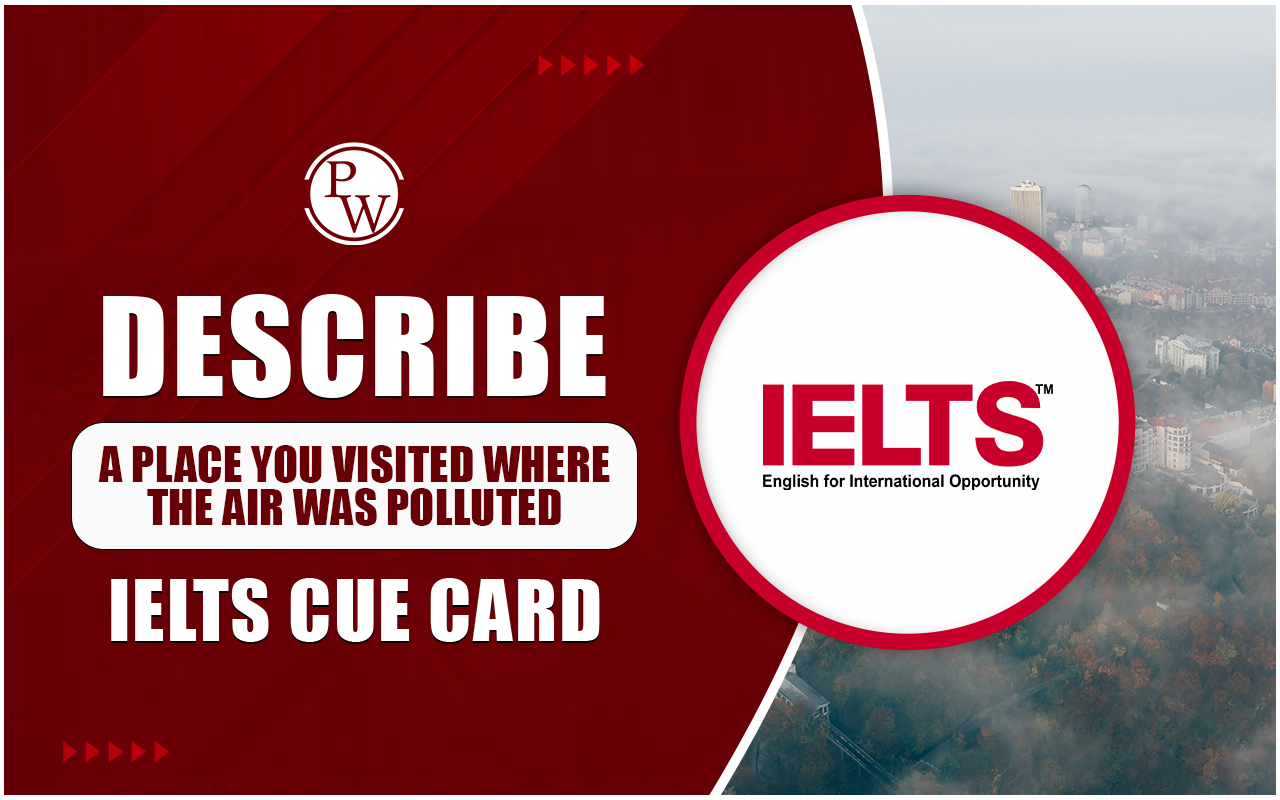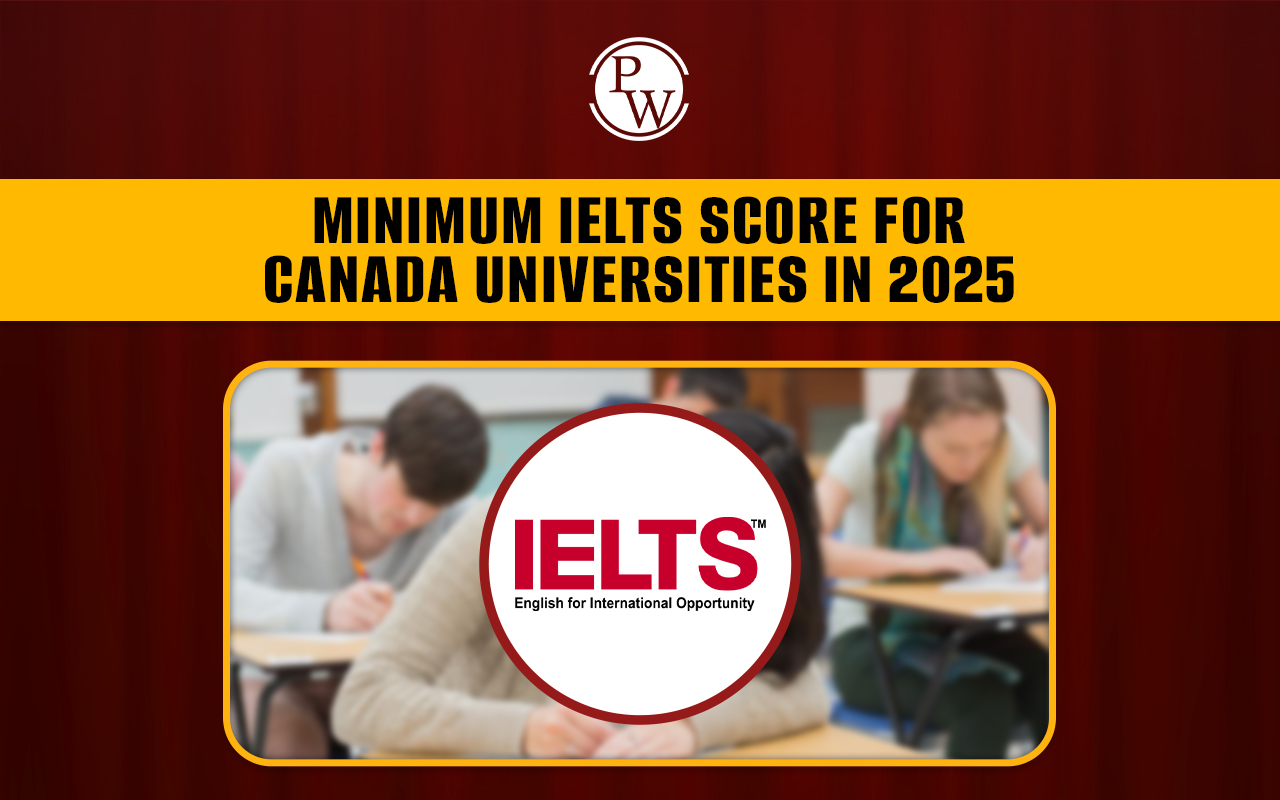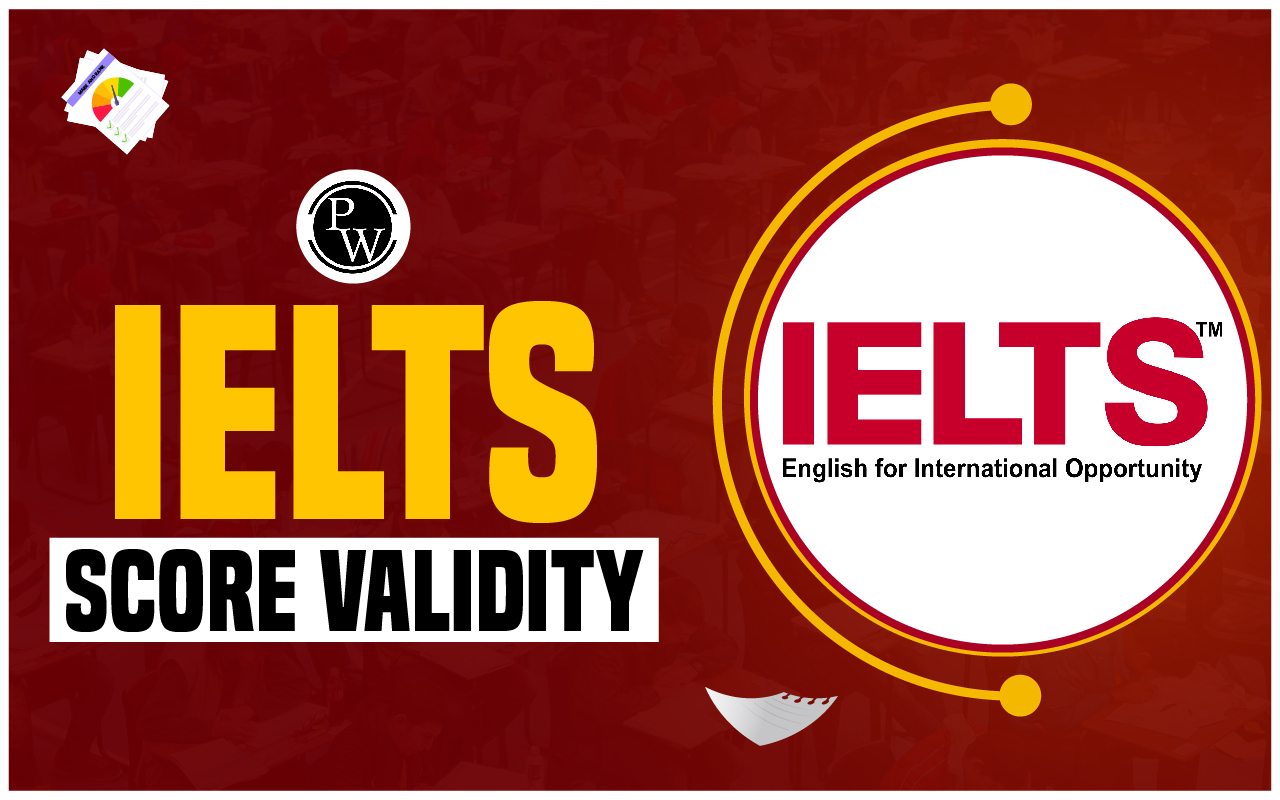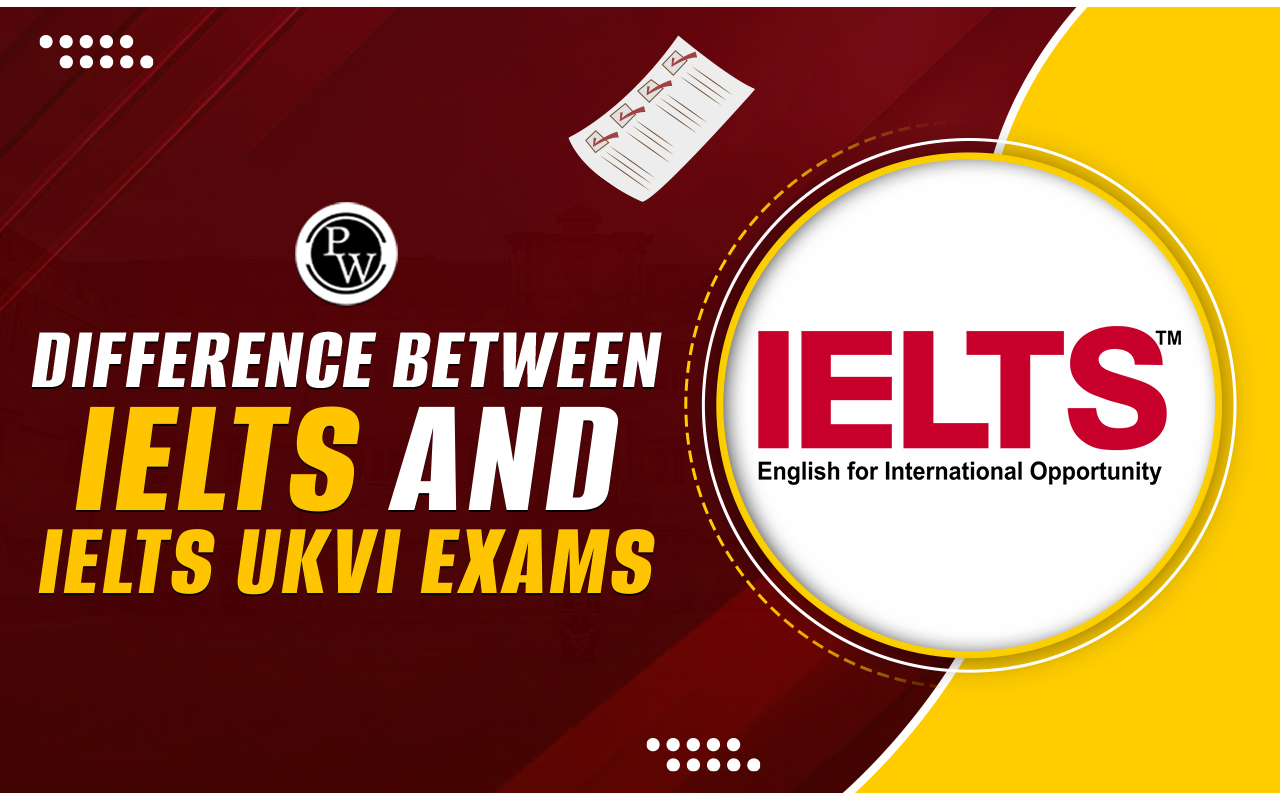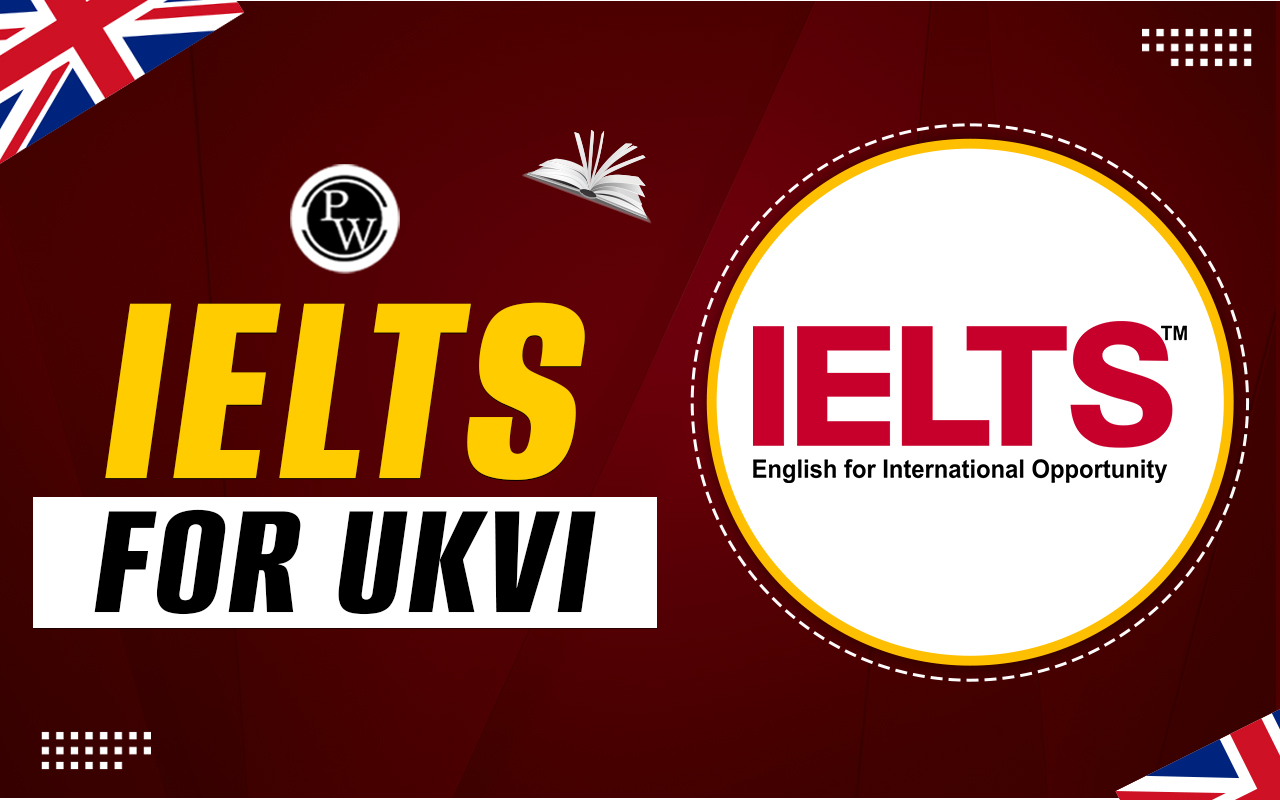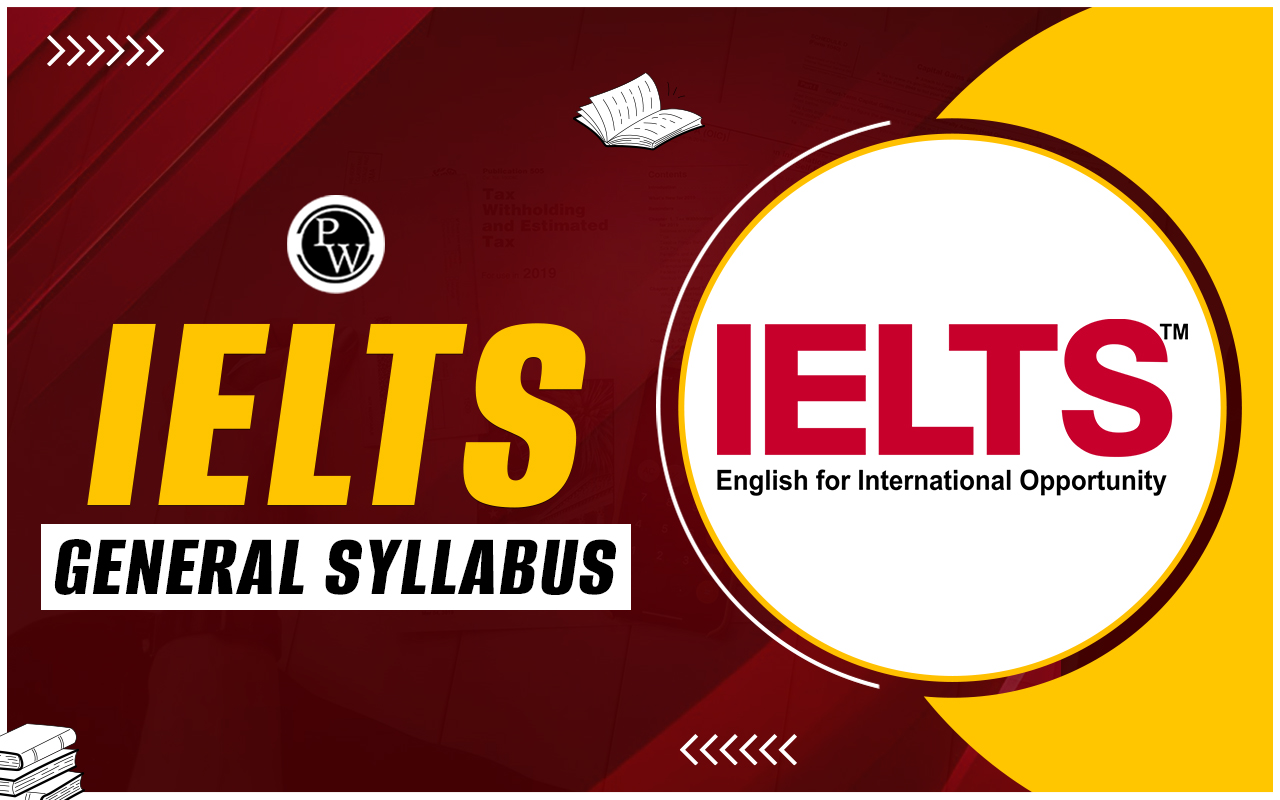

Self-Study Guide for IELTS : Students' speaking, listening, reading, and writing skills are tested on the International English Language Testing System (IELTS) exam. Students should understand how to prepare for the IELTS if they wish to perform well on the exam.
Students can review the Self-Study Guide for IELTS and check out the tips to achieve a high band score on the IELTS Reading, Listening, Speaking, and Writing exam. There are two options for IELTS preparation , taking IELTS coaching classes or self-study.Click Here to Explore IELTS Online Courses
IELTS Exam
All four language skills listening, reading, writing, and speaking in English are tested on the IELTS exam. A 9-band score, with 1 representing the lowest and 9 representing the highest score, will be used to show the results. It takes 2 hours and 45 minutes to complete the exam. You will receive your results 13 days after the exam date, which will be valid for two years following the results. IELTS exams come in two different types, IELTS Academic and IELTS General Training . Both exams will have similar Speaking and Listening sections, but different subjects will be covered in the Reading and Writing sections. Now move forward to the Self-Study Guide for IELTS all sections.IELTS Writing Section
The writing section is said to be the most difficult. Many students complain that they find it challenging to finish a long essay, explain a graph, or write a letter within the given time limit. The entire IELTS writing exam, including tasks 1 and 2, will take about an hour to do. Grammar and the number of words you use in the exam will be among the factors used to determine your score. Use at least 150 words for task 1 and 250 words for task 2.Self-Study Guide for IELTS Writing
The following Self-Study Guide for IELTS Writing is provided for your guidance. Students can use it to make sure they are prepared to confidently take the writing exam: Plan your time Your final IELTS writing band score is determined by taking IELTS Writing Task 2 , which is worth twice as much as Task 1. Remember this and schedule roughly 40 minutes for Task 2 and 20 minutes for Task 1. You might not be able to complete Task 2 if you take too much time on Task 1, which would affect your total Writing band score. Read the task outline twice You must understand the tasks you are performing completely. Students who completely answer every section of the task and show that their answers are well-developed on the subject will receive better scores from IELTS examiners. Make sure the answer covers each of the different parts of the task scenario or question by highlighting or writing them down. Draft your answers You can improve your scores on the coherence and cohesiveness tests by taking the time to prepare the answers. Examiners want proof that you can logically arrange your thoughts. Try to address one main point per paragraph, and reread your essay or letter to make sure that the concepts are cohesive. Use a mix of sentence structures Your writing task answers should contain both simple and complicated sentence structures. Make sure that these are mixed with a few short, simple sentences, even if you feel comfortable using complex language. Excessive use of complex jargon in test answers might make them look odd. Take some practice tests It requires preparation and time to get a high IELTS score. No matter how proficient you are in English, you cannot just schedule and take the exam in a few days. Before taking an IELTS exam, successful students make a study plan to help them learn everything they need to know. Since they are aware that each of the four English language skills speaking, reading, writing, and listening is unique, they set aside time to practice them. Get a study partner Ask someone you know who is studying for the IELTS if they would like to study with you. Sharing ideas and criticism with a study partner can be helpful, and it's a wonderful method for making sure that you don't miss any study sessions. You can enroll in PW IELTS if you don't have a study partner.IELTS Speaking Section
Speaking is the last section covered in the IELTS exam . Each of the three sections that comprise the test will include a 15-minute conversation with the examiner. Part 1's conversation will focus on general topics such as your early years, education, family, friends, and so on. It's important to use suitable sentence structure and speak with confidence. The examiner will give you a task card or cue card that will form the basis of your discussion in part 2. You have 1 minute to prepare for the answer. Part 3 of the IELTS exam will consist of detailed questions from the examiner regarding the topics discussed in Part 2. The speaking exam will be the same for both the Academic and General Training parts. Let us look at the Self-Study Guide for IELTS Speaking exam.Self-Study Guide for IELTS Speaking
Having a larger vocabulary at the beginning of the exam will help you later. Here are a few IELTS Speaking tips that you may use to make sure you are prepared to confidently take the Speaking exam. Practice speaking English daily Talk to friends, family, or language partners in English regularly. Practice having conversations in real time by using language learning apps. Familiarise yourself with the test format Understand each of the three IELTS Speaking exam sections. Understand the kinds of questions that are often asked. Speak clearly and confidently Prefer clarity over speed. Pronunciation errors or misunderstandings might result from speaking too quickly. Go at a steady speed to avoid making nervous mistakes and to think clearly. Extend your answers Stay clear of yes/no answers. Always try to go into more detail with the answers by offering justifications, illustrations, or your thoughts. To successfully convey your thoughts, employ a wide range of phrases and a vast vocabulary. Don't say the same thing over and over. Practice using idioms and synonyms, but be careful to use them correctly. Practice pronunciation Pay attention to your intonation and pronunciation. Mispronounced words may be difficult to understand. Make a recording of your speech and check the replay for any unclear phrases. Avoid over-preparation Your words may sound forced if you practice scripted answers. During the exam, it's important to sound conversational and informal. Use connectors and linking words Use expressions such as "On the other hand," "In my opinion," and "For example" to organize your ideas and make sure the answers make sense.IELTS Reading Section
Both the Academic and General Training modules include the IELTS Reading exam . This 60-minute exam uses different question types and passages to test your reading proficiency. This complete resource offers current information and preparation advice for the IELTS Reading exam.Self-Study Guide for IELTS Reading
Some Self-Study Guide for IELTS Reading are included in the section below: Students can use them to make sure they are prepared to confidently take the exam: Skim over and watch for the answers Skimming is the practice of focusing only on the key points. You don't have to read every word carefully. Keep in mind that you only need to provide answers to the questions. Quickly scan the text before beginning to search for the answers. Watch your time Remember that you only have 60 minutes to read three paragraphs and give answers to 40 questions. Make sure to effectively manage your time because you won't be given more time to complete your answer sheet. Underline Highlight the key passages as you quickly scan the text. When you're looking for answers, it will help you save some time. Pay attention to the details Go over the text carefully. Any unique part, capitalization, underlining, italics, figures, graphs, and tables are probably important. No blank boxes Even if you're unsure about your answer, answer every question. Try your luck and write the most likely answer because you won't be penalized for incorrect answers. Cross out the wrong answers Cross out the answers that you are certain are incorrect. You'll save time and avoid confusion this way.IELTS Listening Section
The most important part of the exam is the IELTS Listening section, which tests the understanding of spoken English in different environments. IELTS Listening consists of four parts, each with 10 questions. Every section of the exam gets harder than the last, and it takes about 30 minutes to finish. The listening exam will conclude with 10 minutes for you to transfer your answers to the answer sheet. Look at Self-Study Guide for IELTS Listening given below:Self-Study Guide for IELTS Listening
Here are a few IELTS listening tips that you may use to make sure you are prepared to confidently take the exam: Familiarise yourself with a range of accents There will be several accents on the IELTS listening exam to represent the global nature of English. You should become used to listening to accents from various English-speaking countries. Don’t lose your concentration Maintaining focus during the IELTS listening exam can be challenging, but it's also important if you want to receive a Band 7 or higher. You must engage in active listening if you want to increase your level of focus. This involves giving yourself little tasks to complete while you practice and doing something while you listen, exactly like you will on the exam. Follow the instructions carefully This is particularly true regarding the word restriction. You are not allowed to write more than this if the question says, "No more than three words." Your answer will be inaccurate if it contains only four words. Practice listening to things only once A lot of teachers let students listen to a recording three or four times. We strongly advise practising the exam under exam environments, which means only listening once.PhysicsWallah Guidance for IELTS Exam
Remember that a strong IELTS band score can increase your chances of admission to the world's best colleges. It is your opportunity to display your English skills and take an essential step towards your foreign education aspirations. Students need a systematic preparation strategy to cover all areas and get the desired band score. PhysicsWallah offers IELTS online classes , including a structured preparation strategy.| IELTS Exam Other Related Links | |
|---|---|
| IELTS Exam | IELTS Academic Vs General |
| IELTS Registration | IELTS Eligibility Criteri a |
| IELTS Mock Test | IDP IELTS Test Centers |
| IELTS Cut Off | IDP IELTS Slot Booking |
Self-Study Guide for IELTS FAQs
Q1- How many reading passages are there in the reading module of IELTS?
Ans- IELTS Academic Reading includes three passages, and IELTS General Training Reading includes five or six passages.
Q2- Is an IELTS score of 7 good in reading?
Ans- Yes, a band score of seven is a very respectable score. It also shows that you are more proficient in the English language. Always try to get above 8 if you can.
Q3 - Can self-study help me pass the IELTS?
Ans - One of the most important components of IELTS achievement is self-study. It is recommended that students become familiar with the structure, sections, and question types of the exam. Along with identifying and improving their problems, they will also need to create techniques for answering test questions.
Q4 - Do IELTS attempts matter?
Ans - Those who want to study abroad may take the IELTS test as many times as they wish. There is no limit on the number of tries. However, it's crucial to remember that repeated testing without sufficient planning may not provide the expected results.
Q5- Should I spend the same amount of time on each section of IELTS Reading?
Ans- It is generally advised that you dedicate a minimum of 20 minutes to each passage. Spend more time working on the third part as it is usually more difficult than the previous two if you are not very proficient in the language. Be careful not to keep track of time while doing this.
Talk to a counsellorHave doubts? Our support team will be happy to assist you!

Check out these Related Articles
Free Learning Resources
PW Books
Notes (Class 10-12)
PW Study Materials
Notes (Class 6-9)
Ncert Solutions
Govt Exams
Class 6th to 12th Online Courses
Govt Job Exams Courses
UPSC Coaching
Defence Exam Coaching
Gate Exam Coaching
Other Exams
Know about Physics Wallah
Physics Wallah is an Indian edtech platform that provides accessible & comprehensive learning experiences to students from Class 6th to postgraduate level. We also provide extensive NCERT solutions, sample paper, NEET, JEE Mains, BITSAT previous year papers & more such resources to students. Physics Wallah also caters to over 3.5 million registered students and over 78 lakh+ Youtube subscribers with 4.8 rating on its app.
We Stand Out because
We provide students with intensive courses with India’s qualified & experienced faculties & mentors. PW strives to make the learning experience comprehensive and accessible for students of all sections of society. We believe in empowering every single student who couldn't dream of a good career in engineering and medical field earlier.
Our Key Focus Areas
Physics Wallah's main focus is to make the learning experience as economical as possible for all students. With our affordable courses like Lakshya, Udaan and Arjuna and many others, we have been able to provide a platform for lakhs of aspirants. From providing Chemistry, Maths, Physics formula to giving e-books of eminent authors like RD Sharma, RS Aggarwal and Lakhmir Singh, PW focuses on every single student's need for preparation.
What Makes Us Different
Physics Wallah strives to develop a comprehensive pedagogical structure for students, where they get a state-of-the-art learning experience with study material and resources. Apart from catering students preparing for JEE Mains and NEET, PW also provides study material for each state board like Uttar Pradesh, Bihar, and others
Copyright © 2025 Physicswallah Limited All rights reserved.
